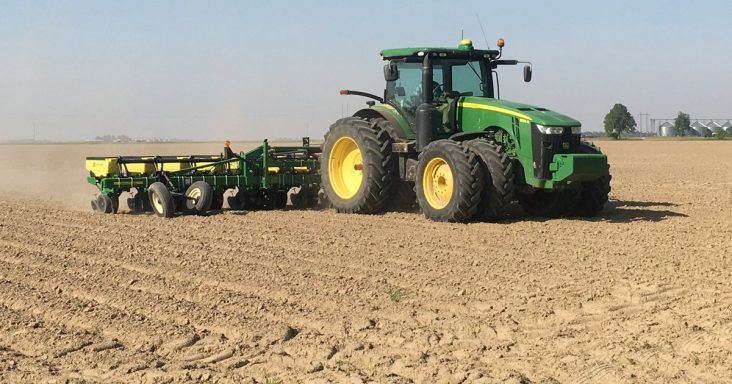Federal government shutdown would hurt farmers and consumers
by September 26, 2023 1:46 pm 872 views

A government shutdown is only a few days away and there could be myriad unintended consequences, and some that will impact farmers and consumers, according to Ryan Loy, extension economist for the University of Arkansas System Division of Agriculture.
Funding for the federal government runs out Sept. 30 unless Congress passes a continuing resolution or finds some other means to keep funds flowing. If the government shuts down, so too would progress toward the next Farm Bill. The Farm Bill has provisions with two sets of expiration dates: Sept. 30, and Dec. 31.
“If you’re a farmer trying to sign up for programs, those agencies are not going to hold sign-ups,” Loy said.
Another effect is that two key agencies, the U.S. Bureau of Labor Statistics and the National Agricultural Statistics Service, will be closed and won’t collect statistics. It will cause trouble in several ways. Without updated information from the BLS, the Federal Reserve can’t take informed action.
If NASS isn’t “going to do acreage reporting, that means they’re not going to give you payments, because nobody’s going to be there to work,” Loy said.
The shutdown would halt funding for Agriculture Risk and Price Loss Coverage programs, known as ARC and PLC. These programs provide protection to farmers in the event of substantial revenue or commodity price drops. No funding means no payments to farmers.
If the government shuts down, participants in the Supplemental Nutrition Assistance Program, or SNAP, and those who have crop insurance, won’t be affected. SNAP includes WIC, the Women, Infants and Children program.
“SNAP was authorized under the 2008 Food and Nutrition Act, so lack of a Farm Bill won’t affect it,” Loy said, “Crop insurance was subsidized through the Federal Crop Insurance Act, so the crop insurance folks are going to be OK.”
Should the Farm Bill not go forward, farm commodity programs would lapse back to what’s referred to as “permanent law,” comprising provisions from the 1938 and 1949 farm bills that never expire. Farm Bills passed since then have language that suspends the outdated provisions.
According to the Congressional Research Service, “permanent law would support dairy, wheat, rice, cotton, and corn but would not support soybeans, peanuts, and sugar, among other commodities. If the permanent law suspension were to expire, the U.S. Department of Agriculture would be required to implement permanent law, which is likely more expensive to the government and consumers than the current farm bill.”
“The big commodities that it will affect are cotton, milk and wheat,” Loy said, “So food prices will skyrocket in stores.”
A government shutdown would disrupt the U.S. economy and the lives of millions of Americans who work for the government or rely on federal services — from air traffic controllers who would be asked to work without pay to some 7 million people in the Women, Infants and Children program, including half the babies born in the U.S., who could lose access to nutritional benefits, according to the Associated Press.
Democrats and moderate Republicans in the U.S. House have tried to broker a deal that would keep the government open. U.S. House Speaker Kevin McCarthy has been unable to get a small but very vocal segment of his ultra conservative base to go along with any deal. Former President Donald Trump is now pushing for a shutdown as he prepares for a possible showdown in 2024 versus incumbent President Joe Biden.
